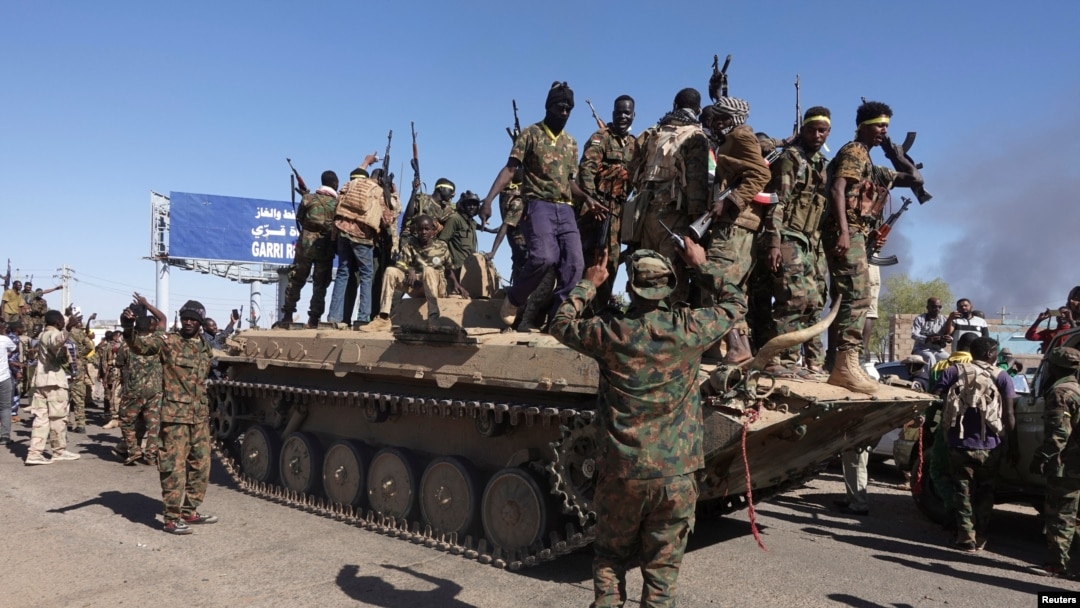Hassan Al Mustafa: Arms extend beyond security and politics
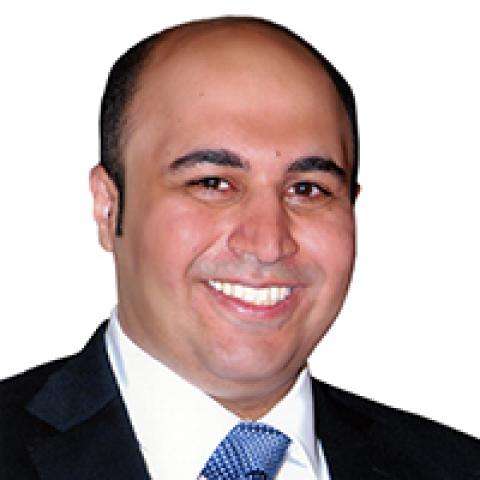
Restricting armament to the state constitutes the central challenge of the Arab world. It is not merely a security and political question; rather, it pertains to the very essence of modern statehood, whose defining function is the monopolisation of the “legitimate use of violence” by its institutions. At its core, then, this is a dilemma that touches on our conception of politics.
The controversy around this matter stems from a misguided notion of statehood that has granted non-state (or sub-state) actors immense leverage. Addressing this problem demands an effort to rebuild society’s cultural, social, and legal awareness and cast aside the obsolete ideas that have been entrenched by movements hostile to the modern state over decades.
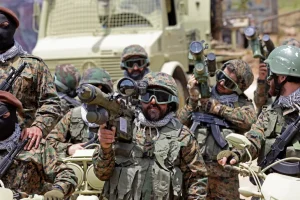
Iraq and Lebanon stand out as prominent examples, but we also see this dynamic in Yemen, Syria, Libya, and other Arab countries. Militias in these countries have taken on roles that place them above the authority of the state, undermining political stability and threatening the peace. Their de facto authority has been reinforced by the negative impact of external factors, such as Israel’s illegal practices- killings, forced displacement, and occupation- that have facilitated non-state actors’ effort to empower themselves at the expense of the nation state.
Dozens of militias have emerged in Iraq since 2003. Some of them were later integrated into the Popular Mobilisation Forces (PMF). However, their loyalties remain diverse. Sectarian affiliations and regional alliances, particularly with Iran are dominant, effectively rendering these forces proxies of the Quds Force of the Iranian Revolutionary Guard Corps. These entities have evolved into parallel power centres: they control borders and resources, impose a shadow economy, and have even secured parliamentary seats. They have consolidated their position as political and military actors through a combination of military strength, religious discourse, and political manoeuvring.
Addressing this problem demands an effort to rebuild society’s cultural, social, and legal awareness and cast aside the obsolete ideas that have been entrenched by movements hostile to the modern state over decades.
Iraqi Prime Minister Mohammed Shia al-Sudani recently laid out a clear stance on the question of arms. “In a stable environment, as Iraq is today, nothing justifies the presence of armed actors who operate autonomously of state institutions.” He stressed that “the state alone holds the monopoly on the use of force, and everyone, especially the tribes, must support the authority of law and the judiciary.” However, this vision remains largely theoretical; indeed, some of al-Sudani’s own coalition allies represent armed factions. Despite the sincerity of his efforts, Sudani faces significant obstacles that require both courage and wisdom to overcome.
Al-Sudani has sought to reassure the public by emphasising that the disarmament process is not focused on any specific group but on upholding the rule of law. His government has already taken measures to curb abuses attributed to members of Kataib Hezbollah, signalling that the era of complacency is nearing its end. However, without unequivocal support from Iraqi political parties and allies, his government might not succeed in asserting the state’s authority and confiscating illegal arms.
Not surprisingly, the militias have rejected these steps. Kataib Hezbollah called for a “blockade” on the prime minister’s decisions and urged the Coordination Framework to intervene. Its secretary-general, Abu Hussein al-Hamidawi, issued the following statement on Telegram: “The resistance’s arms are a red line. We will not surrender them, even under domestic or foreign pressure, because these weapons exist to defend Iraq and confront occupation.”
This standoff reflects a sharp binary: a state striving to assert its sovereignty on one side, and militias that see themselves as above the state, legitimising their position through the narrative of “resistance,” on the other. Yet, the major setbacks that have shaken the “Axis of Resistance” since October 7, 2023, demonstrate that such weapons cannot protect the state itself.
In Lebanon, the challenge is even more complex. Hezbollah is not merely an armed faction; it is a social, military, and political force that is better armed than the national army. This state of affairs has left Lebanon hostage to a perilous position, whereby its weakened state is under the shadow of a statelet that dictates decisions of war and peace.
President Joseph Aoun has been explicit: “No armed groups operating outside the authority of the state or relying on foreign support will be tolerated,” and he then stressed that “the army alone bears responsibility for defending citizens.” His stance aligns with that of Prime Minister Nawaf Salam, who announced that “the army was tasked with preparing a plan to limit arms to the state by the end of the year,” and he underlined that “no one in Lebanon wants another civil war.”
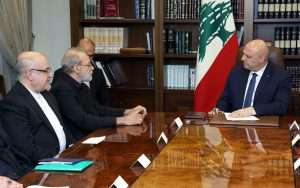
This approach represents a serious attempt to establish a timetable for integrating Hezbollah’s weapons into an institutional framework, through a process designed to avert a national catastrophe. Nonetheless, the Lebanese government faces formidable obstacles. Hezbollah’s response was swift and uncompromising: its secretary-general, Sheikh Naim Qassem, issued a stark warning. “If the government moves forward with implementing this plan, there will be no life in Lebanon… This decision serves Israel, and we are prepared to fight, whatever the cost.”
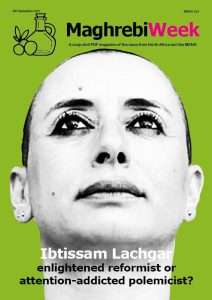
This chasm between the logic of the state and that of “sub-state forces” is rooted in numerous material factors that vary from one Arab country to another. Civil wars, years of occupation, waves of terrorism, and extended periods of chaos have all eroded state institutions, leaving them incapable of protecting their citizens and undermining public trust in the state as whole. As a result of this vacuum, many communities sought alternative forms of protection, paving the way for foreign intervention. There are several instances of militias becoming tied to regional power blocs, turning their weapons into instruments used in proxy conflicts fought on their soil. This has fostered volatile social and economic conditions, which, in turn, have been aggravated by financial crises, poverty, and unemployment, driving segments of young people to join militias in search of income or security.
READ: Hafed Al-Ghwell: Algeria enforces Europe’s southern frontier
Addressing the challenge of non-state actors operating outside the state’s authority demands a strong and capable state, as well as decisive and viable policies that restore respect for institutions, empower national armies, and categorically reject the armament of any faction. Strengthening and modernising security institutions is equally crucial. Building a diverse national fighting force that assumes its responsibilities, as part of a comprehensive reform process, is necessary, as are developmental policies that tackle unemployment and declining incomes.
This is the only path to ending the era of militias, which has drained the region, and to allow the nation-state to become the unifying defender of its citizens.
The views expressed in this article belong to the author and do not necessarily reflect the editorial policy of Maghrebi.org. Hassan Al-Mustafa is a Saudi writer and researcher interested in Islamic movements, the development of religious discourse and the relationship between the Gulf Cooperation Council states and Iran. Twitter: @Halmustafa
If you wish to pitch an opinion piece please send your article to grace.sharp@maghrebi.org.
Want to chase the pulse of North Africa?
Subscribe to receive our FREE weekly PDF magazine










